Standardbots vs ABB Robotics

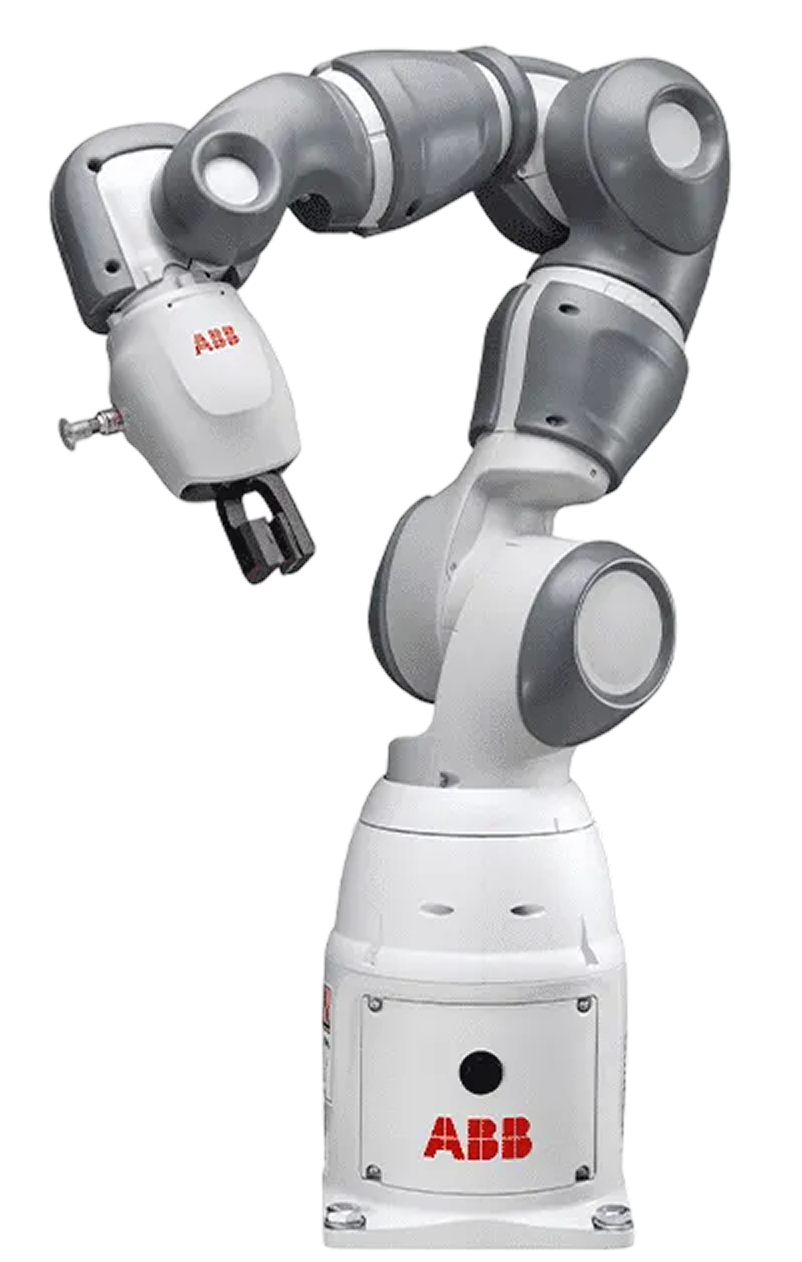
Which industrial robots are the better fit in 2025?
Trusted by Fortune 500s and independent shops




















3 reasons to use Standard Bots over ABB Robots
Plug n Play
Integrate your existing equipment via network & I/O ports, or direct integration with mills from Haas.
Cost Effective
Starting at $49,500, our flagship Thor model out-lifts, out-performs and out-prices the competition.
Seamless Setup
Anyone can program a Standard Bots robot and automate tasks in hours using our no-code interface, ArcOS.
"Our operator who doesn't code set up Standard Bots in a day."- Henry

How Standard Bots compares to ABB Robots
Further reaching, more precise, better priced.
The future of automation
starts today
Our new AI product, now in private beta, lets you demonstrate a task to the robot, and then it will perform the task autonomously using a learning model. The robot will even adapt to variations in the environment and correct on its own.
Standard Bots vs. ABB: Which industrial robots are the better fit in 2025?
3 reasons to choose Standard Bots over ABB
- Cost-efficiency & transparency: Standard Bots delivers equivalent or better performance across all key specifications at a fraction of ABB’s cost. ABB robots typically require third-party integration, add-ons, and training, which can push total deployment costs well into six figures.
- Standard Bots Core ($37,000 list price) – 18kg payload, 1.3m reach, built-in 3D vision and collaborative safety.
- Standard Bots Thor ($49,500 list price) – 30kg payload, 2m reach, all-in-one system ready for heavy-duty jobs.
- Ease of use & deployment: With no-code programming, Core and Thor can be up and running in days, saving time for teams with and without robotics engineers. ABB robots require advanced RAPID programming and longer integration cycles, which extend ROI timelines for most manufacturers.
- U.S.-based support: Standard Bots provides fast, U.S.-based service and training. ABB’s global service network mainly supports enterprise operations, often leading to longer response times for smaller manufacturers.
How does Standard Bots compare with ABB?
Standard Bots Core vs. ABB IRB 1600: Quick comparison
Standard Bots Thor vs. ABB IRB 2600: Quick comparison
What to look for in an ABB competitor
If you’re comparing ABB to alternatives, focus on the bigger picture, not just the spec sheet.
The key factors include:
- Service and support: Can you get fast, local help when something goes wrong?
- ROI & payback period: Will the robot pay for itself in months, or take years to justify?
- Ease of programming: No-code or teach interfaces save months of training versus RAPID.
- Fit for your scale: ABB excels in 24/7 enterprise factories, but competitors may offer higher payloads, tighter tolerances, or simpler setups for the same investment.
These comparisons show how Standard Bots matches or outperforms ABB across precision, deployment time, and cost-efficiency.
The 5 best ABB competitors in 2025
1. Standard Bots
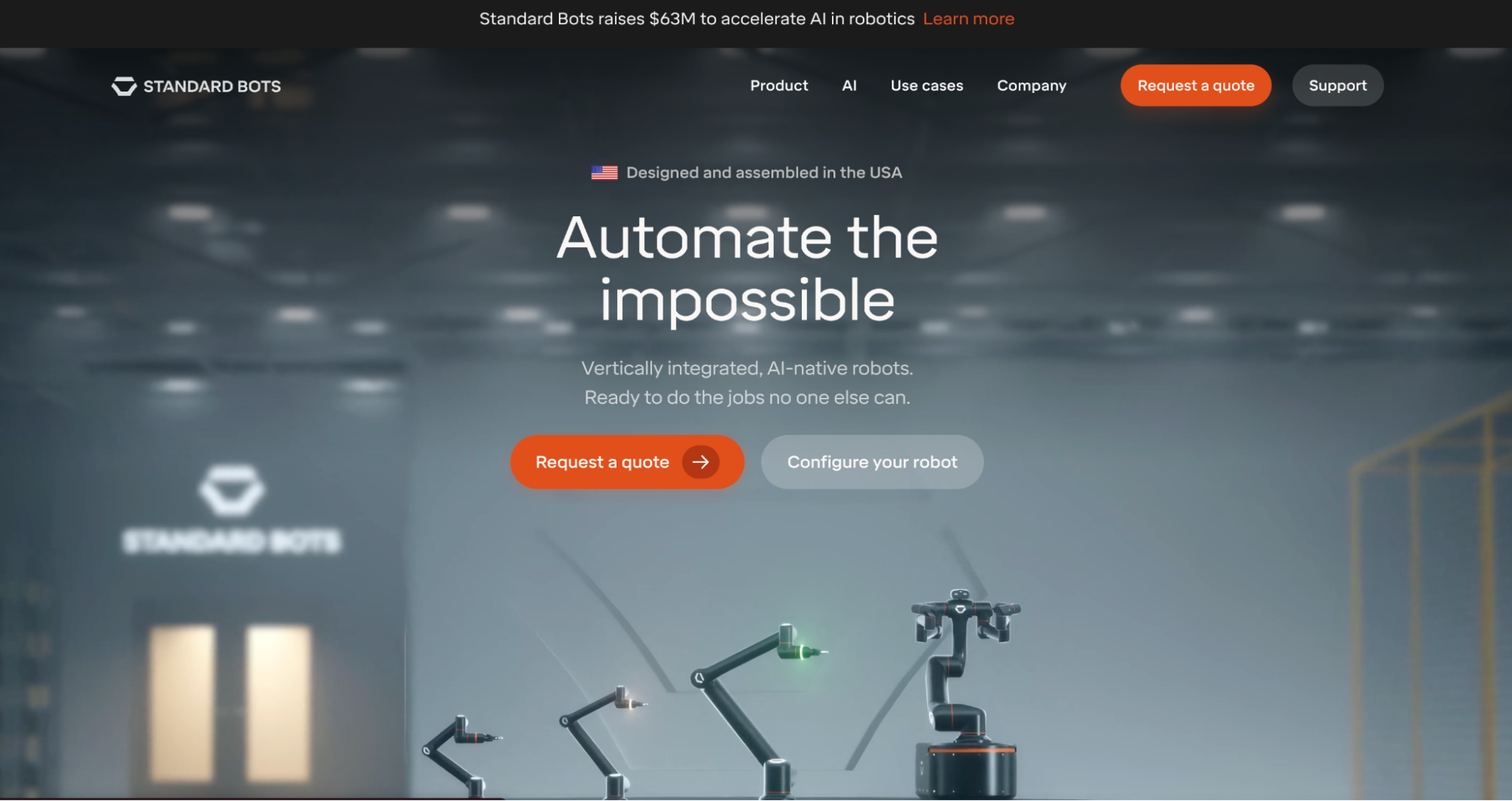
Standard Bots delivers enterprise-level performance without enterprise overhead. Core handles automation tasks like CNC tending, welding, and palletizing with built-in 3D vision and safety. Priced at $37,000, it arrives pre-integrated and only requires a gripper to begin production.
Thor extends the same platform with a 30 kg payload and 2 m reach for heavier applications. Both deploy in days without external integration, helping manufacturers shorten ROI cycles and start production faster than any ABB setup.
Best for: Manufacturers of all sizes that want fast ROI, predictable costs, and scalable automation.
Strengths:
- Designed and assembled in the USA
- No-code interface for fast deployment
- All-in-one package, no hidden add-ons
- Thor covers high-payload jobs without enterprise overhead
Trade-offs:
- Limited international shipping
2. Universal Robots
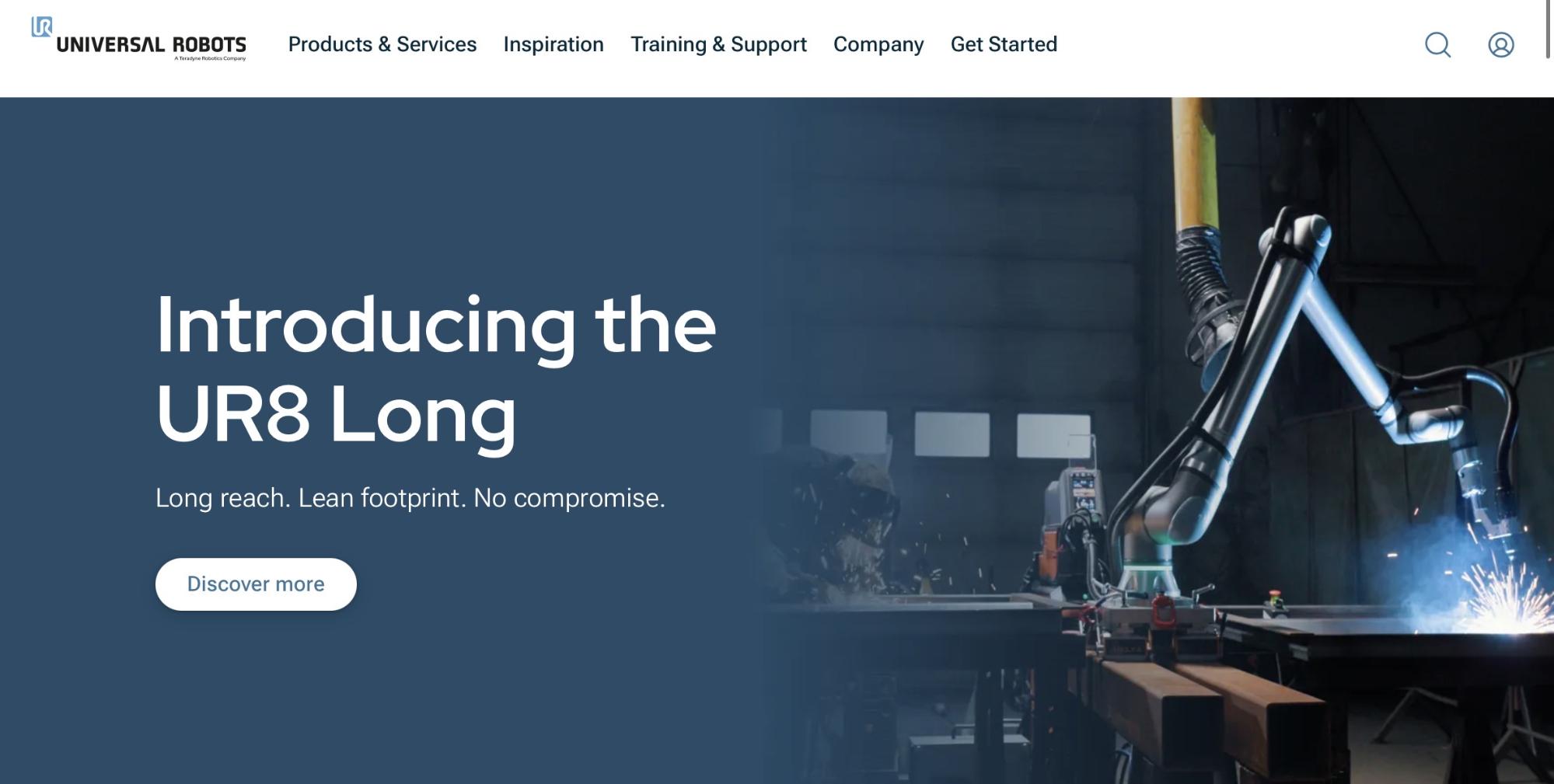
Universal Robots, or UR, is a well-known cobot brand with a large ecosystem of accessories and partners. Its cobots are flexible and approachable, but real costs accumulate quickly once you add vision, grippers, and integration.
Best for: Shops that want wide third-party options and flexible setups.
Strengths:
- Simple Polyscope programming
- Global ecosystem of accessories
- Decent service and training network
Trade-offs:
- Vision not included by default
- True deployments cost $60k to $80k
- Slower time-to-value than Standard Bots Core or Thor
3. FANUC
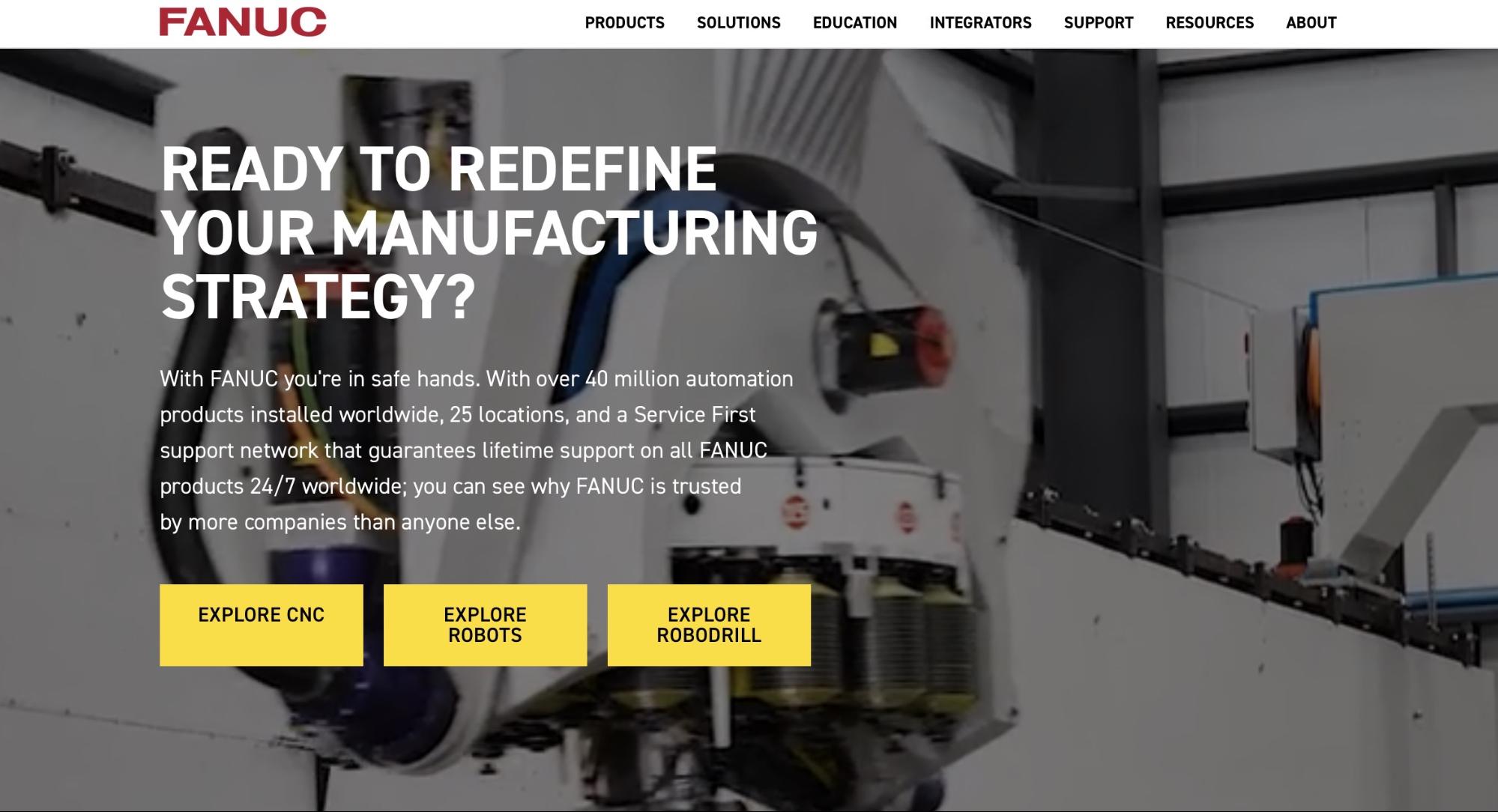
FANUC is a Japan-based industrial robotics company that offers CRX cobots, which are widely recognized and supported by a worldwide service network. The lower entry price is appealing, but SMEs often face steep integration costs and a challenging programming environment.
Best for: Enterprises with dedicated robotics teams that don’t mind proprietary programming.
Strengths:
- Claimed high precision
- Wide parts availability
- Long service life (advertised)
Trade-offs:
- Not plug-and-play like Standard Bots
- Integrator reliance increases cost and timelines
- Proprietary programming with a steep learning curve
4. KUKA
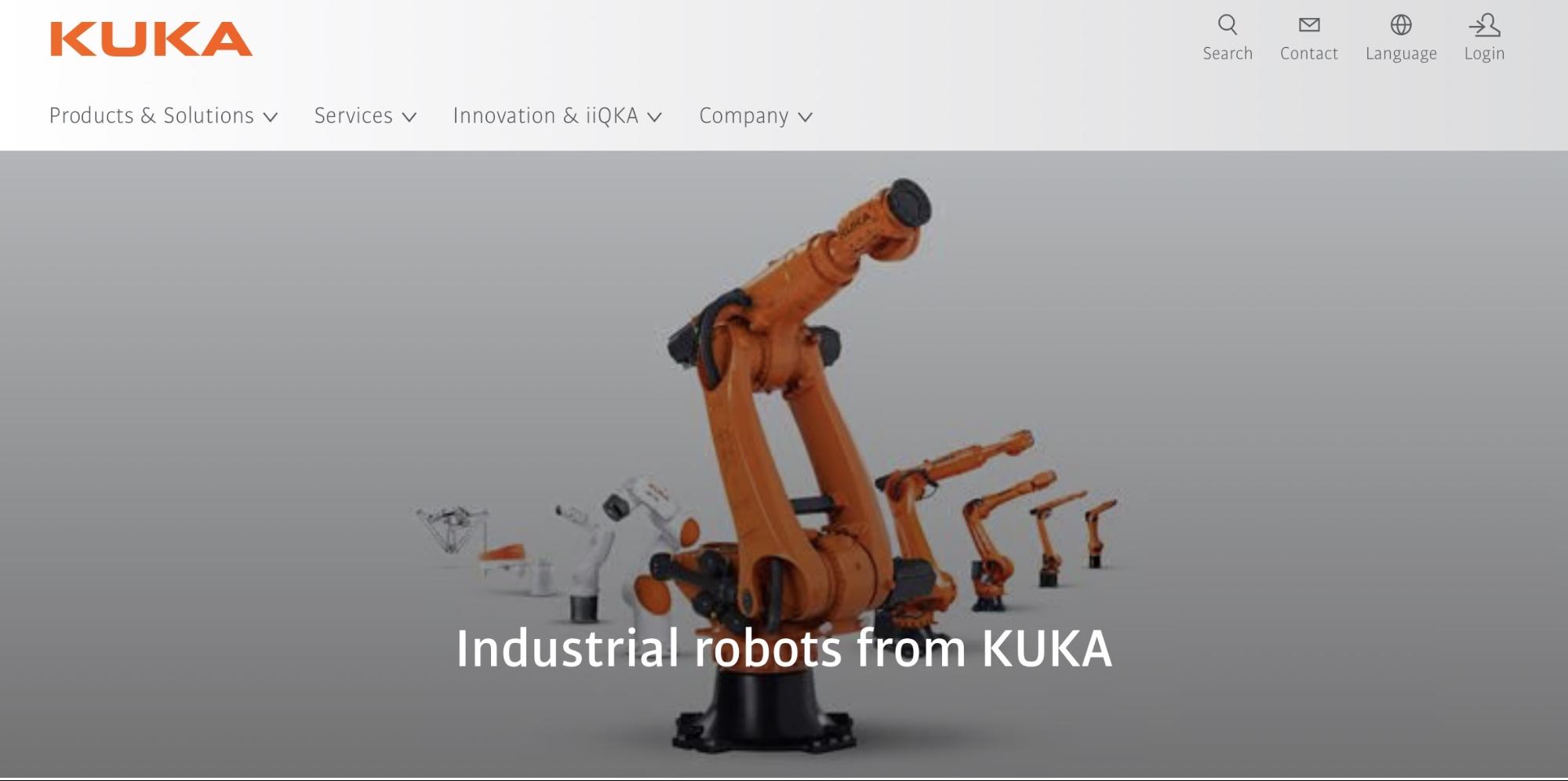
KUKA’s lineup spans from lightweight cobots to heavy-duty industrial arms. The hardware is durable, but programming and integration remain complex, often slowing adoption for smaller manufacturers.
Best for: Large enterprises in aerospace, automotive, or electronics.
Strengths:
- Accurate motion control
- Well-known legacy brand
- Portfolio across payload ranges
Trade-offs:
- Advanced programming required
- Integration adds time and cost for smaller teams
- Slower and lower ROI compared to Standard Bots Core and Thor
5. Yaskawa Motoman
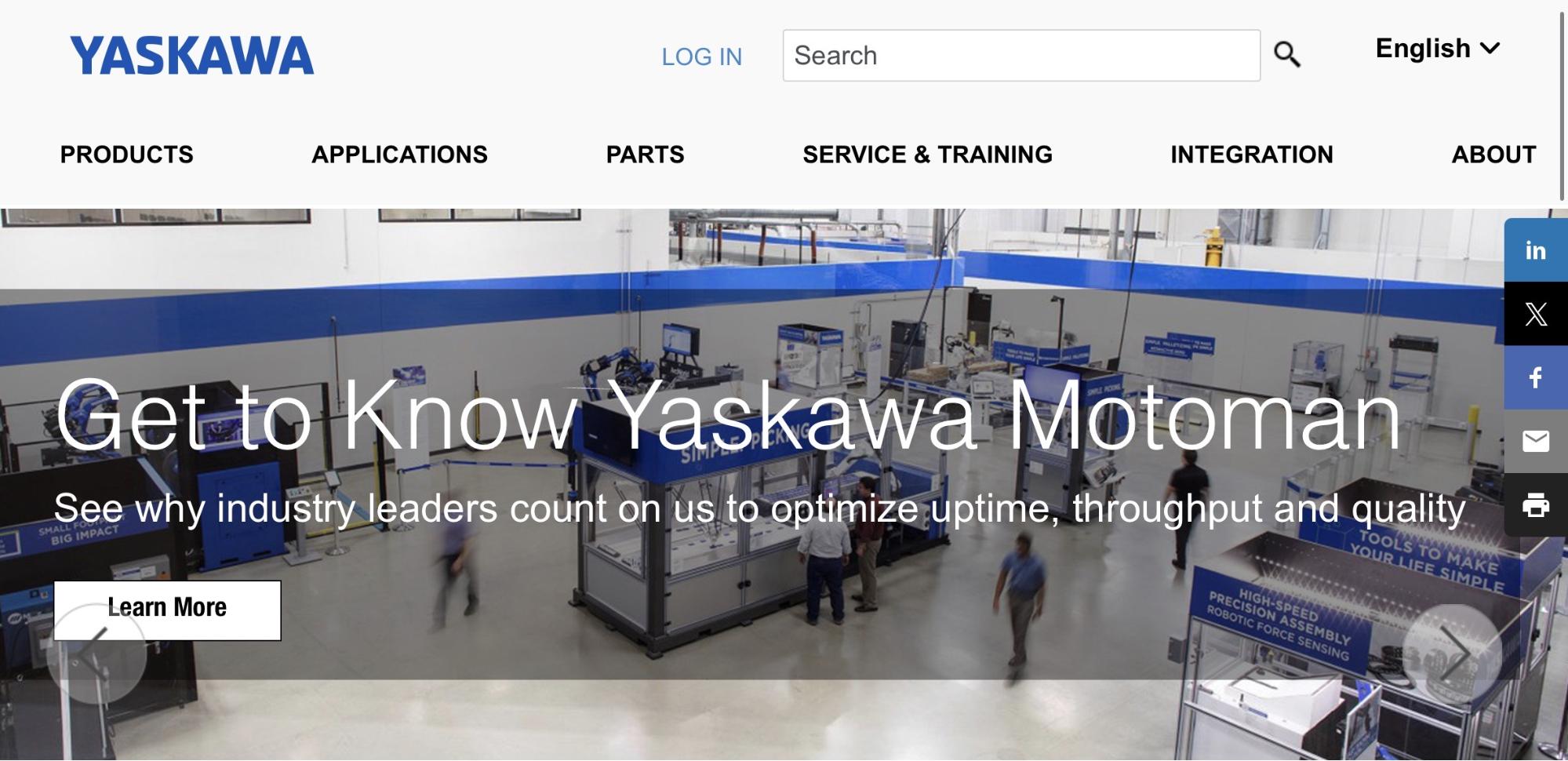
Yaskawa Motoman is a Japan-based robotics manufacturer known for welding, packaging, and material handling. Its systems work well for large facilities, but don't offer the integrated ease-of-use that Standard Bots delivers.
Best for: Larger shops with recurring low-mix production.
Strengths:
- North American service support
- Consistent mechanical performance
- Established in welding and material handling
Trade-offs:
- Integrators required
- Proprietary programming, not beginner-friendly
- Less cost-effective than Core or Thor
How ABB compares with its competitors
Verdict
ABB remains a good option for highly technical enterprises with in-house robotics engineers and high-volume cells. For small and mid-sized manufacturers, however, high integration costs and complex setup make deployment slower and ROI harder to achieve.
Standard Bots Core achieves quick implementation benefits, while Thor brings this strength to more robust operations, both enabled by in-house direct American service. Universal Robots, KUKA, FANUC, and Yaskawa could work for specific enterprise manufacturing settings, but across both enterprise and SME sectors, Standard Bots represents the most direct route to positive operational outcomes.
FAQs
1. Is ABB or Standard Bots better for small manufacturers?
ABB and Standard Bots both serve all manufacturers, but Standard Bots is better for small and mid-sized teams. Core costs $37,000, includes built-in 3D vision and no-code programming, and sets up in days. ABB systems are designed for enterprise-scale operations with robotics engineers and multi-shift workflows.
2. What programming knowledge do ABB robots require?
ABB robots require knowledge of the RAPID programming language, which demands advanced training or a systems integrator. Standard Bots Core uses no-code programming, so operators can deploy tasks without coding.
3. How much do ABB robots cost in 2025?
ABB robots cost between $50,000 and $150,000+, depending on the model and configuration. Smaller collaborative models like YuMi start around $50,000, while IRB series arms can exceed six figures once integration and add-ons are included.
4. Who are the top ABB competitors in 2025?
The top ABB competitors in 2025 are Standard Bots, Universal Robots, FANUC, KUKA, and Yaskawa Motoman. Each brand targets different use cases, but Standard Bots offers the fastest, lowest-risk path for most manufacturers.
5. Why is Standard Bots considered the best ABB competitor?
Standard Bots is considered the best ABB competitor because Core and Thor deliver industrial-grade performance with no-code setup and U.S.-based support at accessible prices. These cobots deliver fast ROI without the integration hurdles or engineering overhead typical of ABB deployments.

